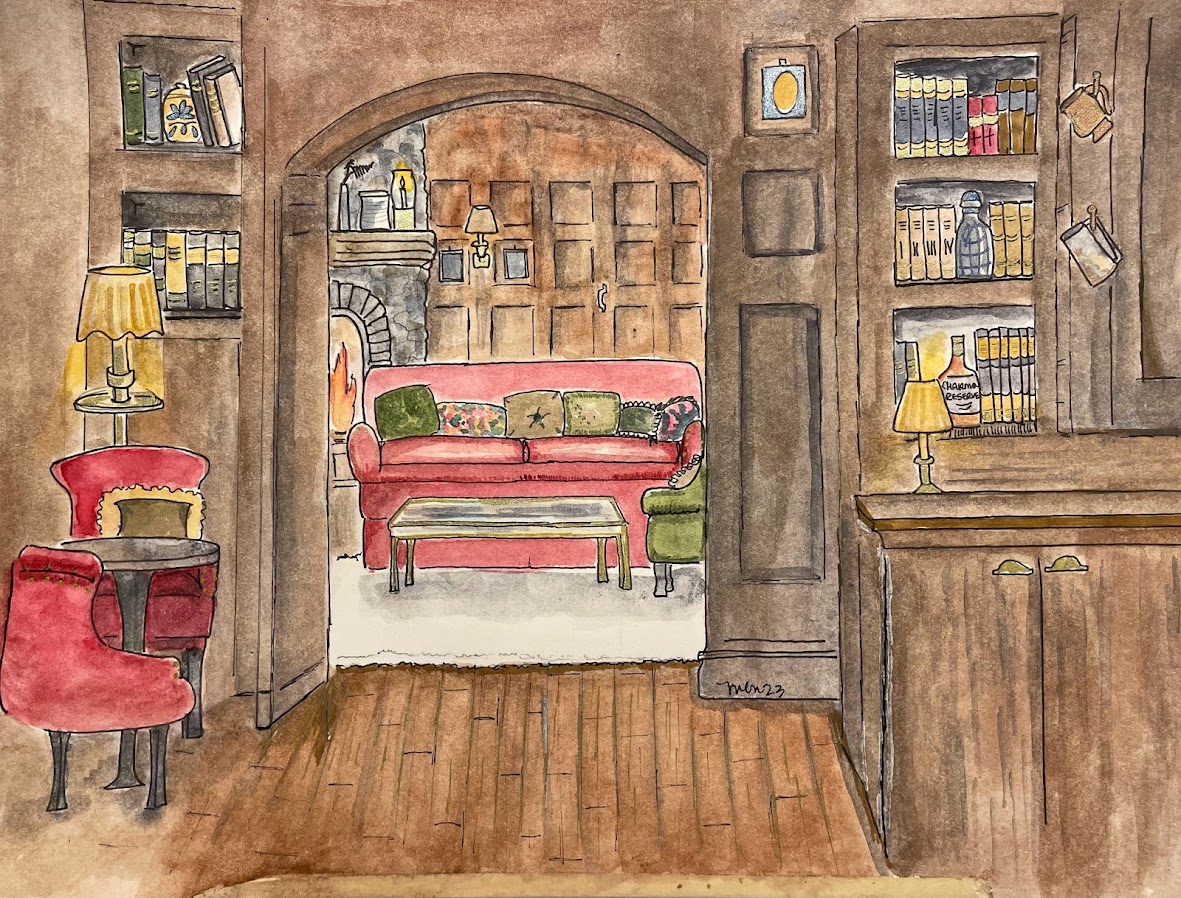Preparing for a presentation this week, I uncovered an old dry erase board in the garage. I thought if I could get it clean, I could use it for a screen for our power point presentation, as there was no blank area of wall or place in the meeting room on which to project. It was purchased at a garage sale years ago, and was used previously by my kids as a Nerf Gun target. The green, red, black and blue markings would not wipe off the board. They had seeped into the surface and a dry paper towel barely removed anything.

As I Googled ways to clean an old dry erase board, I began trying Windex, then vinegar, and then some other products which helped but did not remove the years-old-ink. I finally grabbed my husband’s favorite product, the Magic Eraser sponge. Filling his stocking every year with many of Mr Clean’s wondrous sponges, we were in no short supply, so I quickly wet a corner and began to wipe. The ink began to fade but it would not disappear altogether unless I used great force to twist and scrub. After a long, sweaty battle with only bits of Magic Eraser sponge left, I cleared the board. I still could see faint remnants of the markings, but using my own elbow grease in combination with the right cleaner had won out.
Upon entering the room for our presentation, I was mystified to see a portable screen, especially after we were told twice that none were available! Thankfully, my dry-erase board with its heavy metal frame and easel would remain in the trunk of my car. I wouldn’t have to awkwardly drag it into the meeting room, but it had, nonetheless, already served an important purpose.
I felt the Holy Spirit wanted me to understand that cleaning the board was a good analogy for explaining “paths to holiness” to our group of faith-filled women that evening. All of the products in my arsenal did little to remove the ink from the board. It was my “elbow grease”– my participation–which removed the ink, along with the “Magic” eraser sponge, which I compared to the mystery of sacraments, especially communion and confession.
Like the ink, the stain of sin is part of our human condition. In order to cleanse our lives we may use different “products” like reading a spiritual book, attending a seminar or joining a bible study. Like the Windex, vinegar and paper towels, those certainly will be useful and are an important part of living a productive, holy life. However, it is our sorrow for sin, our desire for holiness and our efforts–our participation in our relationship with God–that is the final scrub for our holiness through prayer and the sacraments. Only then can we allow Him to place His plan for our lives in our hearts. (Praying our prayers, verses saying our prayers).
I have always said that marriage is like forever balancing an egg on the tip of your finger, the fragility of which necessitates a gentle, loving, vigilance. It is the same with our faith. We must respond to Christ as our most important relationship, requiring our constant attention, effort, and diligence. When discerning what God desires for our lives, we begin with a call on our hearts. He will reveal Himself in the stillness of our soul; when we quiet ourselves, invite him in, and listen to Him. “Come, Holy Spirit…”
“The harvest is abundant but the laborers are few;
so ask the master of the harvest
to send out laborers for his harvest.
Go on your way;
behold, I am sending you like lambs among wolves.”
This Sunday’s gospel reminds us that the need for this holy vigilance is vital, especially now in our culture in which we are being fed a steady diet of relativism and negative news. If you are at all a believer then you, my friend, are a laborer. Don’t take it lightly because we are only here on this earth for a short time. Love people as much as you can. Complain as little as possible, and pray without ceasing. Start right now.
Gospel LK 10:1-12
Jesus appointed seventy-two other disciples
whom he sent ahead of him in pairs
to every town and place he intended to visit.
He said to them,
“The harvest is abundant but the laborers are few;
so ask the master of the harvest
to send out laborers for his harvest.
Go on your way;
behold, I am sending you like lambs among wolves.
Carry no money bag, no sack, no sandals;
and greet no one along the way.
Into whatever house you enter, first say,
‘Peace to this household.’
If a peaceful person lives there,
your peace will rest on him;
but if not, it will return to you.
Stay in the same house and eat and drink what is offered to you,
for the laborer deserves his payment.
Do not move about from one house to another.
Whatever town you enter and they welcome you,
eat what is set before you,
cure the sick in it and say to them,
‘The Kingdom of God is at hand for you.’
Whatever town you enter and they do not receive you,
go out into the streets and say,
‘The dust of your town that clings to our feet,
even that we shake off against you.’
Yet know this: the Kingdom of God is at hand.
I tell you,
it will be more tolerable for Sodom on that day than for that town.”



Leave a comment